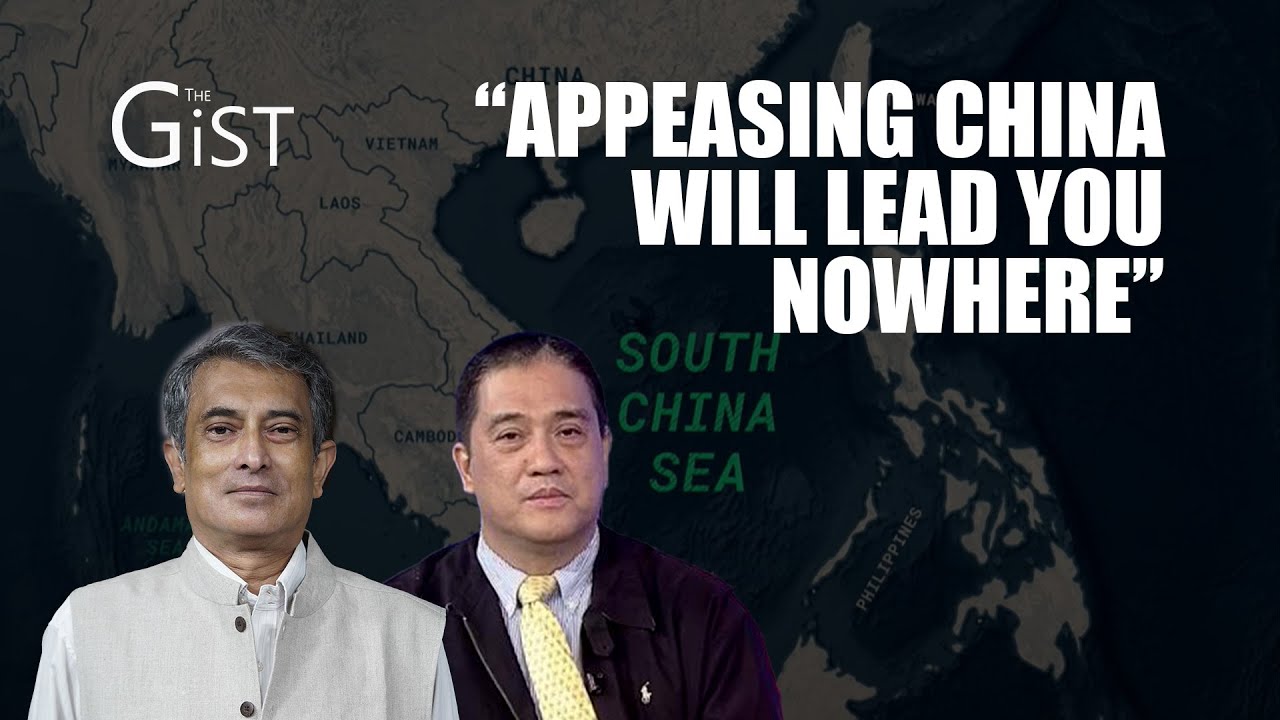Zhang Weiwei: China's Rise is SHOCKING the U.S. Military into War it Can't Win (EXCLUSIVE INTERVIEW)
Summary
TLDRIn this interview, Professor Jang Way Way, a renowned scholar of international relations and director of the China Institute at Fudan University, discusses China's geopolitical stance. He contrasts China's approach with that of the U.S., emphasizing China's commitment to peaceful solutions in regions like the South China Sea and highlighting the country's avoidance of military aggression. He also explores China's role in major global conflicts, including the Russia-Ukraine war and Middle Eastern tensions. Jang advocates for a multipolar world focused on mutual prosperity rather than conflict, critiquing Western narratives of inevitable confrontation.
Takeaways
- 🌍 Professor Jang Way Way emphasizes China's position as a 'civilizational state,' representing one of the world's oldest continuous civilizations with its own unique values and modernity.
- 💪 He contrasts China's peaceful approach in geopolitical conflicts, especially in the South China Sea, with the aggressive history of the United States, highlighting China's restraint despite military superiority.
- 🛑 Professor Jang believes that the idea of a U.S.-China war is outdated, emphasizing the need for peace through wisdom and international law rather than warfare, particularly given both nations' nuclear capabilities.
- 🇺🇦 He views the Russia-Ukraine conflict as tragic for China, noting that China is neutral but criticizes NATO’s expansion as a key factor in triggering the war.
- 🤝 China's role as a mediator in global conflicts, especially in the Middle East, was highlighted with the reconciliation between Iran and Saudi Arabia and efforts to unify Palestinian factions under the 'Beijing Declaration.'
- 📜 The professor underlines China's diplomatic philosophy of 'unite and prosper,' contrasting it with the Western approach of 'divide and rule.'
- ⚖️ He stresses that China seeks a peaceful, multipolar world order, advocating for 'mutually assured prosperity' instead of the Cold War's 'mutually assured destruction.'
- 📊 Professor Jang notes that China’s technological and economic rise has made it a credible alternative to the West, emphasizing the shift in global power dynamics.
- 🛡️ China's stance on nuclear weapons remains one of non-first use, with Professor Jang warning of the global consequences of nuclear conflict between superpowers like China and the U.S.
- 🤝 He concludes that the U.S. must shift its mindset from zero-sum competition to a 'win-win' philosophy to foster better relations with China in a multipolar world.
Q & A
What is a civilizational state according to Professor Jang?
-A civilizational state refers to one of the world's oldest continuous civilizations combined with a super-large modern state. It incorporates its own traditions, modernity, and values, such as China's approach to international relations and conflict resolution.
How does China view its role in the South China Sea compared to the United States?
-China advocates for peaceful solutions to territorial disputes in the South China Sea and contrasts this with the U.S.'s history of military intervention. Professor Jang notes that while China has the military power to reclaim disputed islands, it prefers negotiations and avoids the use of force.
What is China's stance on using military force and nuclear weapons?
-China is cautious about warfare and holds a high threshold for using military force. Since 1964, after testing its first nuclear weapon, China declared it would not be the first to use nuclear weapons and would not use them against non-nuclear states.
What does Professor Jang say about the possibility of a U.S.-China war?
-Professor Jang considers the idea of a U.S.-China war outdated and stresses that such a conflict, especially between nuclear powers, would lead to global destruction. He advocates for peace through wisdom, international law, and mutual prosperity instead of conflict.
How does China view the Russia-Ukraine conflict?
-China views the Russia-Ukraine conflict as a tragedy because both Russia and Ukraine are China's friends and strategic partners. China attributes the conflict mainly to NATO's expansion and believes it could have been avoided if NATO had respected Russia's concerns.
What role has China played in the Middle East, according to Professor Jang?
-China has played a proactive role in the Middle East, facilitating reconciliation between rivals like Iran and Saudi Arabia. It has also promoted unity among Palestinian factions, emphasizing its philosophy of 'unite and prosper' to achieve long-term peace in the region.
What are the changes in the world that Xi Jinping refers to as 'changes unseen in a century'?
-These changes include the relative decline of the West and the rise of the Global South. Economically, the BRICS nations now have a combined GDP larger than the G7. Technologically, China has become self-sufficient in areas like microchip production. These shifts represent a transition towards a multipolar world.
How does China's 'win-win' philosophy differ from the U.S. approach?
-China's 'win-win' philosophy emphasizes mutual benefit and cooperation, contrasting with what Professor Jang describes as the U.S. approach of 'I win, you lose,' which he considers less sophisticated.
How does China view NATO expansion?
-China views NATO as a relic of the Cold War and believes its expansion, particularly towards Russia, provoked the conflict in Ukraine. Professor Jang cites warnings from Western experts like George Kennan and Henry Kissinger, who advised against NATO's expansion as it would infringe on Russia's core interests.
What is China's view on nuclear conflict with the U.S.?
-China believes a nuclear conflict with the U.S. would be catastrophic for the entire world. Professor Jang emphasizes that China will not be the first to use nuclear weapons and advocates for mutually assured prosperity rather than mutually assured destruction.
Outlines

このセクションは有料ユーザー限定です。 アクセスするには、アップグレードをお願いします。
今すぐアップグレードMindmap

このセクションは有料ユーザー限定です。 アクセスするには、アップグレードをお願いします。
今すぐアップグレードKeywords

このセクションは有料ユーザー限定です。 アクセスするには、アップグレードをお願いします。
今すぐアップグレードHighlights

このセクションは有料ユーザー限定です。 アクセスするには、アップグレードをお願いします。
今すぐアップグレードTranscripts

このセクションは有料ユーザー限定です。 アクセスするには、アップグレードをお願いします。
今すぐアップグレード関連動画をさらに表示

Without U.S., “China Will Consider Us Meat On The Table”

China's AI regulation - expert insights from Angela Zhang

China's Panda Diplomacy, Explained

Islamic Bloc Opens Front Against India, War Inevitable? | The Chanakya Dialogues Major Gaurav Arya |

Meet the Author: Tim Marshall

Perspective : India-China Border Dispute | 04 January, 2023
5.0 / 5 (0 votes)
